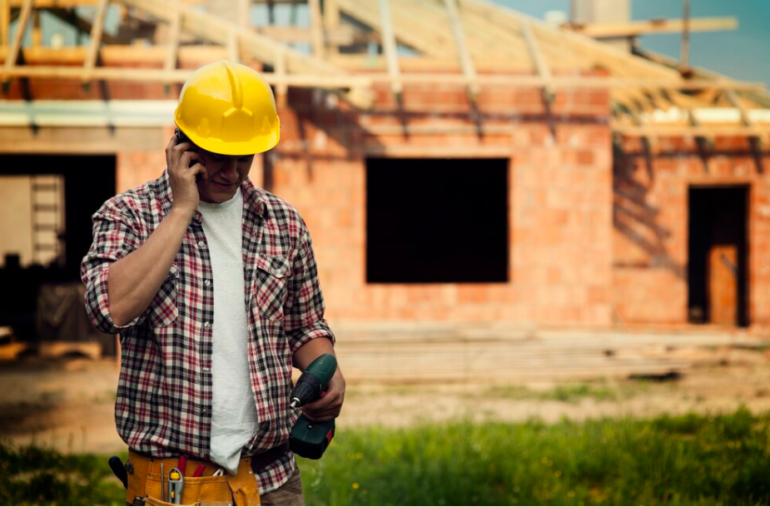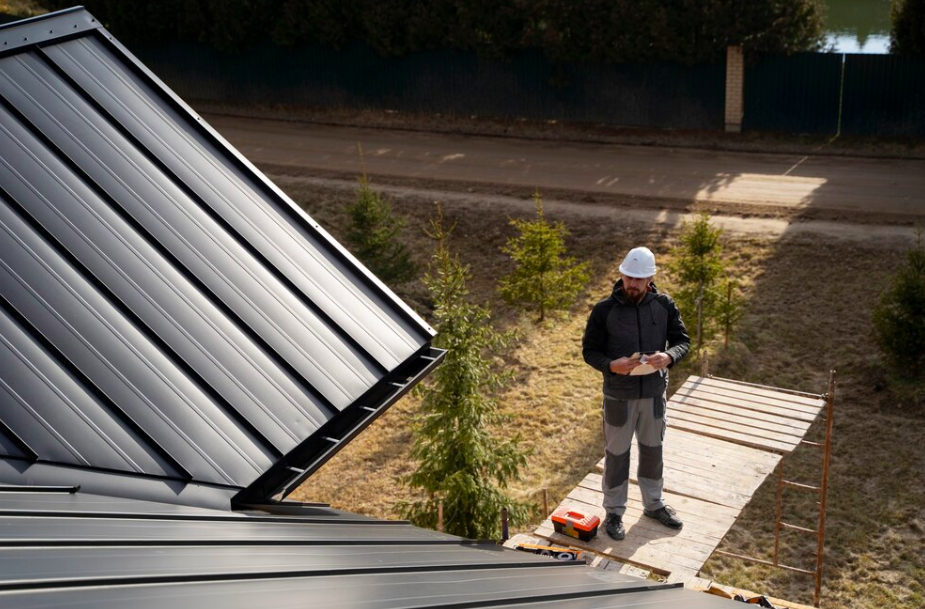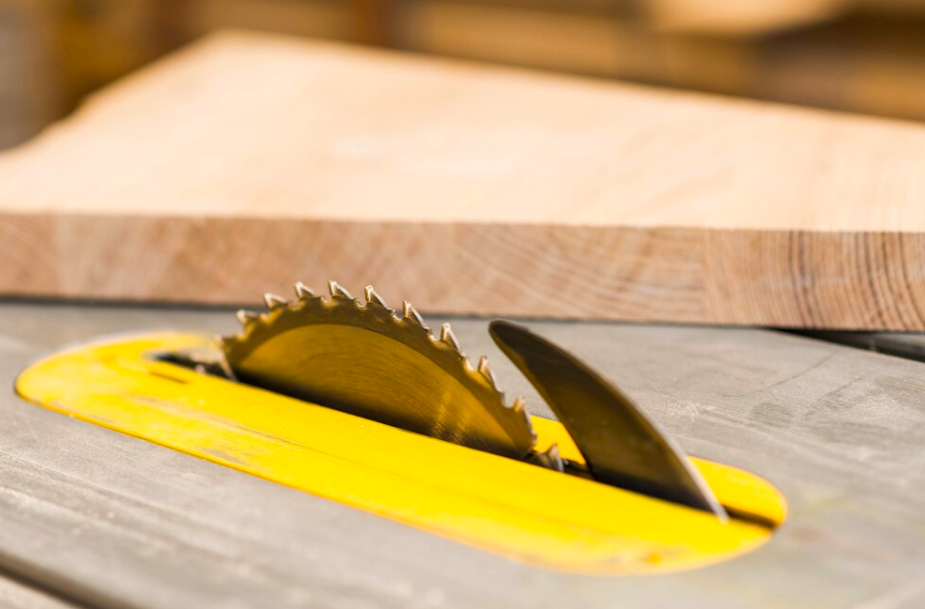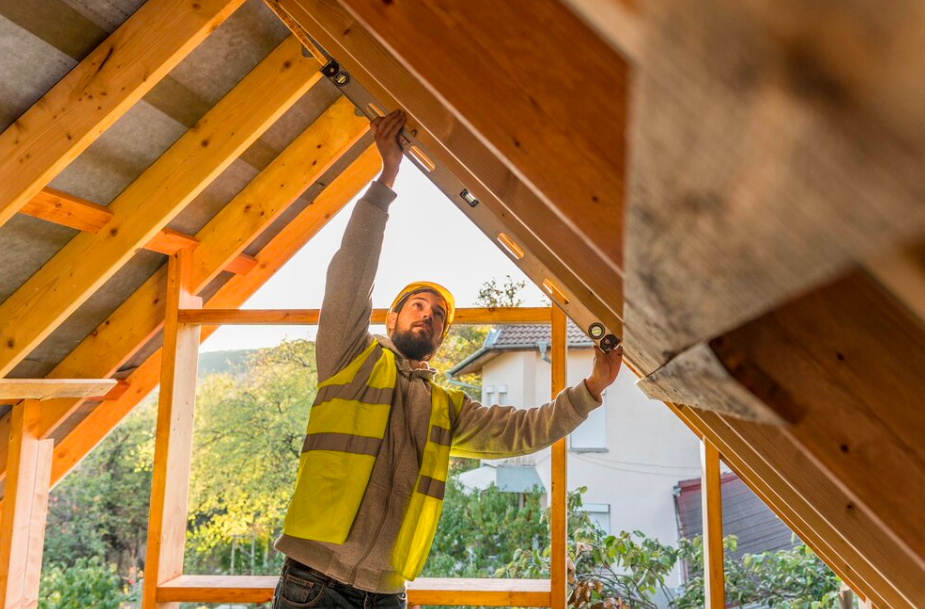
- June 27, 2024
- Home Improvement
- No Comments
Building a home is a major endeavor that calls for detailed planning, precise execution, and attention to detail. Whether you’re starting from the ground up or renovating an existing space, optimizing your construction process can save you time, money, and future maintenance hassles. This guide offers valuable insights into roofing tips, essential tools, and the best materials to make sure your project is both efficient and long-lasting.
Roofing Tips: Ensuring Durability and Longevity

For a roof that lasts, choosing the right materials and ensuring proper installation are essential steps. Regular maintenance and timely repairs further safeguard against potential issues. Here’s how to build a roof that stands strong over time:
Choose the Right Roofing Material
Selecting the right roofing material is crucial for the longevity and appearance of your home. Select roofing materials like asphalt shingles, metal, slate, clay tiles, or innovative choices such as rubber roof pavers that meet your climate and design needs. Asphalt shingles are cost-effective and easy to install, while metal roofs are durable and energy-efficient. Slate and clay tiles offer a classic look but are more expensive and require a strong structure to support their weight.
Focus on Ventilation and Insulation
Choosing the right insulation can significantly impact your home’s energy efficiency and comfort. When comparing XPS vs EPS insulation, consider the specific advantages each material offers. XPS insulation provides excellent moisture resistance and durability, making it ideal for areas like basements and crawl spaces. On the other hand, EPS insulation is versatile and cost-effective, suitable for walls, roofs, and other applications where moisture control is less critical. Evaluate your climate and project requirements to determine the best insulation type that aligns with your sustainability goals and budget.
Pay Attention to Roof Slope and Design
The slope of your roof affects water drainage and overall durability. Steeper slopes allow for better water runoff, reducing the risk of leaks and water damage. Additionally, consider the architectural style of your home and local climate when designing the roof to ensure it complements the overall structure and withstands weather conditions.
Regular Maintenance and Inspections
Routine maintenance extends the lifespan of your roof. Conduct bi-annual inspections to check for damaged shingles, leaks, and debris buildup. Promptly address any issues to prevent minor problems from becoming major repairs.
Essential Tools for Home Construction

Having the right tools is essential for successfully undertaking any home construction project. Key tools like a power drill, hammer, and circular saw ensure precision and efficiency from basic repairs to major renovations.
Measuring Tools
Accurate measurements are the foundation of any construction project. Essential measuring tools include tape measures, laser distance measurers, and levels. A combination square is also useful for ensuring right angles during framing and woodworking.
Cutting Tools
Quality cutting tools are essential for precise construction. Circular saws, along with the best circular saw blade, jigsaws, and miter saws, offer versatile options for different cutting tasks. Additionally, keeping utility knives and chisels on hand is crucial for detailed work and finishing touches. These tools ensure accurate cuts and smooth finishes throughout your project, enhancing overall efficiency and quality.
Fastening Tools
Reliable fastening tools ensure structural integrity. Invest in a good set of hammers, nail guns, and screwdrivers. Cordless drills with a variety of bits are invaluable for drilling holes and driving screws efficiently.
Safety Gear
Safety should never be compromised. Equip yourself with protective gear such as hard hats, safety glasses, gloves, and ear protection. A sturdy harness and safety ropes are essential when working at heights.
Specialized Tools
Depending on the scope of your project, specialized tools like a tile cutter, drywall lift, or pipe wrench may be necessary. Assess your specific needs to determine which specialized tools will enhance your efficiency and precision.
Best Materials for Home Construction

Choosing the best materials for home construction is essential as they ensure durability, energy efficiency, and comfort, ultimately reducing long-term maintenance costs and enhancing property value. Superior materials also contribute to a sustainable living environment by minimizing resource consumption and environmental impact.
Foundation and Framing
A strong foundation and frame are critical for structural stability. Use high-quality concrete for foundations and pressure-treated lumber for framing to resist termites and rot. Steel beams are an excellent choice for added strength and durability, especially in areas prone to seismic activity.
Insulation
Effective insulation improves energy efficiency and indoor comfort. Fiberglass and foam board are common choices, offering excellent thermal resistance. When considering the best moisture barrier for basement walls, choose materials that not only insulate but also act as a reliable moisture barrier. Moisture-resistant foam board or specialized basement insulation products can effectively prevent moisture infiltration, ensuring a dry and comfortable living space.
Exterior Cladding
Exterior cladding protects your home from the elements and contributes to its aesthetic appeal. Vinyl siding is a popular, low-maintenance option, while fiber cement offers durability and fire resistance. For a natural look, consider wood siding, though it requires regular maintenance to prevent decay.
Windows and Doors
High-quality windows and doors enhance energy efficiency, security, and curb appeal. Opt for double or triple-pane windows with low-E glass to reduce heat transfer. Solid wood or steel doors provide superior security and insulation compared to hollow-core alternatives.
Roofing Materials
As discussed earlier, roofing materials play a crucial role in durability and energy efficiency. Asphalt shingles, metal, slate, and clay tiles are among the best choices. Ensure that the materials you select are suitable for your local climate and architectural style.
Tips for Efficient Home Construction

Efficiency in home construction is crucial for cost savings and sustainability. By reducing resource use and energy consumption, efficient building practices not only lower initial construction costs but also promote long-term environmental conservation.
Plan and Budget Wisely
A detailed plan and realistic budget are the cornerstones of a successful construction project. Outline every phase of the project, including materials, labor, and contingency funds for unexpected expenses. Regularly review and adjust your budget to stay on track.
Hire Skilled Professionals
While DIY projects can be rewarding, certain aspects of home construction require professional expertise. Hire licensed and experienced contractors for tasks such as electrical work, plumbing, and structural modifications. This ensures safety and compliance with building codes.
Use Sustainable Practices
Incorporating sustainable practices reduces your environmental footprint and can lower long-term costs. Choose energy-efficient appliances, install solar panels, and use recycled or eco-friendly materials. Implementing rainwater harvesting systems and xeriscaping can also conserve water.
Stay Organized and Communicate
Effective organization and communication streamline the construction process. Keep detailed records of contracts, permits, and receipts. Maintain open communication with your contractors and suppliers to ensure everyone is on the same page and any issues are promptly addressed.
Focus on Quality
Cutting corners to save time or money can lead to costly repairs and maintenance down the line. Invest in high-quality materials and skilled labor to ensure your home is built to last. Pay attention to detail and insist on thorough inspections at every stage.
Essential Strategies for Successful Home Construction
For effective home construction, it’s crucial to plan strategically, use appropriate tools and materials, and adhere to best practices. Pay attention to essentials such as roofing, insulation, and structural integrity, and equip yourself with the right tools and safety gear. Prioritize quality and sustainability to create a home that is both attractive and comfortable, while also being durable and energy-efficient. Visit Archers Homes to discover more tips and resources for your construction project.
